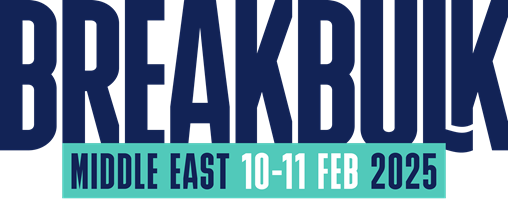Dec 10 | 2019
Kuwait will continue to be a top destination for project cargo thanks to huge projects.
Much like its neighbour Saudi Arabia, Kuwait is ploughing ahead with huge projects of national importance – ones of such scale that necessitate chartering and specification of heavy lift and project cargo transport.
Each development covers a unique sector, but oil & gas is never far from project portfolios throughout the Middle East and Kuwait’s is no different. Infrastructure is playing a significant part in keep Kuwaiti demand high for specialist transport services.
Kuwait is using its substantial oil & gas revenues to provide funding for an extensive construction programme.
As of June 2019, $494 billion of construction projects are currently active in Kuwait, according to research from ProTenders.
That figure covers developments in varying stages, with the breakdown looking something like this:
• Design stage - $243.5bn – 49.3%
• Construction phase - $140.9bn – 28.5%
• Planning stage - $63bn – 12.8%
The three key sectors covering the bulk of spending are
• Urban buildings - $337.7bn
• Infrastructure - $76bn (excluding Silk City)
• Oil & gas - $59bn
The above represents ProTenders’ research. In the oil & gas sphere alone, other commentators, such as MEED, suggests investment in grass roots and may be as high as $68bn.
With such spending, it’s clear to see the potential for out of gauge and oversized freight handling throughout Kuwait.
As part of its five-year plan from 2015-2020, the Kuwaiti government is investing heavily in numerous infrastructure initiatives. These range from entirely new cities, to transport links, to portside infrastructure, presenting numerous opportunities for transporters to snag some big contracts.
One of the largest is the Kuwait Metro Project. The $7bn endeavour will be executed over five phases and is expected to include 68 stations, 60% of which will be underground. Total track length is estimated at 160km, and it will provide links to Kuwait City centre, Kuwait International Airport, Rail, as well as the national rail freight depot.
A new $4.3bn terminal at Kuwait International Airport is also underway, marked at 36% complete as of September 2019. However, the scope of this construction project means it will likely be completed by 2023, assuming there are no major delays.
Mubarak Al-Kabeer is nearing completion, with estimates suggesting it may be ready to receive ships and cargo by the end of 2019.
This folds into a much larger, $86bn construction project, designed to harness further cargo flows from China as part of its globe-spanning One Belt One Road freight network initiative.
Silk City encompasses an international airport, new rail links, and a free trade zone adjacent to the Mubarak Al-Kabeer port. The first stage of construction, which is still in the tendering and pre-qualification phase, will add a logistics area as well as an industrial hub.
Infrastructure is a key consideration for Kuwait and promises to be a steady contract generator for the project cargo sector. But, as mentioned earlier, the old standby of the oil & gas industry is also seeing significant investment.
Kuwait is the world’s fourth largest oil producer, and it is keen to remain that way with oil & gas being massive revenue generators for the government.
Between $59 and $68bn in hydrocarbons projects throughout the nation. Kuwait may be looking at developing harder-to-reach resources to boost production. Projects of this nature often require specialist cargo handling, which is where heavy lift and freight forwarders can benefit.
Kuwait Oil Company (KOC) announced in July 2019 it had contracted Halliburton to begin its first offshore exploration drilling in the Arabian Gulf. This covers six high-pressure high-temperature exploration wells requiring two jack-up rigs, the first to be delivered in 2020, with the next in the following year.
The Lower Fars Heavy Oil Field Development is also a long gestating project that is finally seeing activity pick up.
Representing the first use of enhanced oil recovery techniques for a commercial project in Kuwait, the Lower Fars Heavy Oil Field Development is an exciting project and certainly one to watch in 2019.
The project, located at Al Jaharah in North Kuwait, aims to initially produce 60,000 b/d of heavy oil, rising to 270,000 b/d by 2030. The development of the field will include the construction of plant buildings, pipelines and flowlines.
The Jurassic Field is also expected to make Kuwait a gas producer, as well as adding further oil to improve Kuwait’s output. Pre-qualification of firms taking part in these developments include Schlumberger, Daewoo Engineering & Construction, Saipem, Petrofec, and Tecnicas Reunidas.
Two contracts have been awarded so far. Together, they will create an onshore surface production facility with the capacity to produce 50,000 barrels of oil a day and 150 million standard cubic feet of gas a day.
The hydrocarbons will be produced from sour and wet reservoir fluids from the North Kuwait Jurassic Fields.
The scope of the two projects will also include a water treatment unit, a sulphur recovery unit and associated facilities, such as a control room, substations and buildings.
The variety of major developments happening in Kuwait should keep producing a steady flow of contracts from now well into the future.
Now is the time to start making connections and holding conversations with Kuwaiti project owners.
Breakbulk Middle East is the most effective way to win new project cargo business in Saudi Arabia, GCC, and wider region.
Government ministries, private sector oil & gas companies and the world’s top EPCs hold the keys to these lucrative contracts.
Breakbulk Middle East has become the place to meet these decision makers. And because of strong gatekeeping systems within Middle Eastern companies, this event is one of the few ways to make direct contact with them.
Join the conversation for yourself at the next show edition at the Dubai World Trade Centre.
Want to get involved? Book your stand and become a Breakbulk exhibitor today.
Each development covers a unique sector, but oil & gas is never far from project portfolios throughout the Middle East and Kuwait’s is no different. Infrastructure is playing a significant part in keep Kuwaiti demand high for specialist transport services.
Megaprojects in Kuwait
Kuwaiti construction spending
Kuwait is using its substantial oil & gas revenues to provide funding for an extensive construction programme.
As of June 2019, $494 billion of construction projects are currently active in Kuwait, according to research from ProTenders.
That figure covers developments in varying stages, with the breakdown looking something like this:
• Design stage - $243.5bn – 49.3%
• Construction phase - $140.9bn – 28.5%
• Planning stage - $63bn – 12.8%
The three key sectors covering the bulk of spending are
• Urban buildings - $337.7bn
• Infrastructure - $76bn (excluding Silk City)
• Oil & gas - $59bn
The above represents ProTenders’ research. In the oil & gas sphere alone, other commentators, such as MEED, suggests investment in grass roots and may be as high as $68bn.
With such spending, it’s clear to see the potential for out of gauge and oversized freight handling throughout Kuwait.
Infrastructure projects
As part of its five-year plan from 2015-2020, the Kuwaiti government is investing heavily in numerous infrastructure initiatives. These range from entirely new cities, to transport links, to portside infrastructure, presenting numerous opportunities for transporters to snag some big contracts.
One of the largest is the Kuwait Metro Project. The $7bn endeavour will be executed over five phases and is expected to include 68 stations, 60% of which will be underground. Total track length is estimated at 160km, and it will provide links to Kuwait City centre, Kuwait International Airport, Rail, as well as the national rail freight depot.
A new $4.3bn terminal at Kuwait International Airport is also underway, marked at 36% complete as of September 2019. However, the scope of this construction project means it will likely be completed by 2023, assuming there are no major delays.
Mubarak Al-Kabeer is nearing completion, with estimates suggesting it may be ready to receive ships and cargo by the end of 2019.
This folds into a much larger, $86bn construction project, designed to harness further cargo flows from China as part of its globe-spanning One Belt One Road freight network initiative.
Silk City encompasses an international airport, new rail links, and a free trade zone adjacent to the Mubarak Al-Kabeer port. The first stage of construction, which is still in the tendering and pre-qualification phase, will add a logistics area as well as an industrial hub.
Infrastructure is a key consideration for Kuwait and promises to be a steady contract generator for the project cargo sector. But, as mentioned earlier, the old standby of the oil & gas industry is also seeing significant investment.
Between $59-68bn in developing oil & gas
Kuwait is the world’s fourth largest oil producer, and it is keen to remain that way with oil & gas being massive revenue generators for the government.
Between $59 and $68bn in hydrocarbons projects throughout the nation. Kuwait may be looking at developing harder-to-reach resources to boost production. Projects of this nature often require specialist cargo handling, which is where heavy lift and freight forwarders can benefit.
Kuwait Oil Company (KOC) announced in July 2019 it had contracted Halliburton to begin its first offshore exploration drilling in the Arabian Gulf. This covers six high-pressure high-temperature exploration wells requiring two jack-up rigs, the first to be delivered in 2020, with the next in the following year.
The Lower Fars Heavy Oil Field Development is also a long gestating project that is finally seeing activity pick up.
Representing the first use of enhanced oil recovery techniques for a commercial project in Kuwait, the Lower Fars Heavy Oil Field Development is an exciting project and certainly one to watch in 2019.
The project, located at Al Jaharah in North Kuwait, aims to initially produce 60,000 b/d of heavy oil, rising to 270,000 b/d by 2030. The development of the field will include the construction of plant buildings, pipelines and flowlines.
The Jurassic Field is also expected to make Kuwait a gas producer, as well as adding further oil to improve Kuwait’s output. Pre-qualification of firms taking part in these developments include Schlumberger, Daewoo Engineering & Construction, Saipem, Petrofec, and Tecnicas Reunidas.
Two contracts have been awarded so far. Together, they will create an onshore surface production facility with the capacity to produce 50,000 barrels of oil a day and 150 million standard cubic feet of gas a day.
The hydrocarbons will be produced from sour and wet reservoir fluids from the North Kuwait Jurassic Fields.
The scope of the two projects will also include a water treatment unit, a sulphur recovery unit and associated facilities, such as a control room, substations and buildings.
Kuwait’s impressive product potential
The variety of major developments happening in Kuwait should keep producing a steady flow of contracts from now well into the future.
Now is the time to start making connections and holding conversations with Kuwaiti project owners.
Breakbulk Middle is where you’ll find Kuwait project cargo contracts
Breakbulk Middle East is the most effective way to win new project cargo business in Saudi Arabia, GCC, and wider region.
Government ministries, private sector oil & gas companies and the world’s top EPCs hold the keys to these lucrative contracts.
Breakbulk Middle East has become the place to meet these decision makers. And because of strong gatekeeping systems within Middle Eastern companies, this event is one of the few ways to make direct contact with them.
Join the conversation for yourself at the next show edition at the Dubai World Trade Centre.
Want to get involved? Book your stand and become a Breakbulk exhibitor today.





